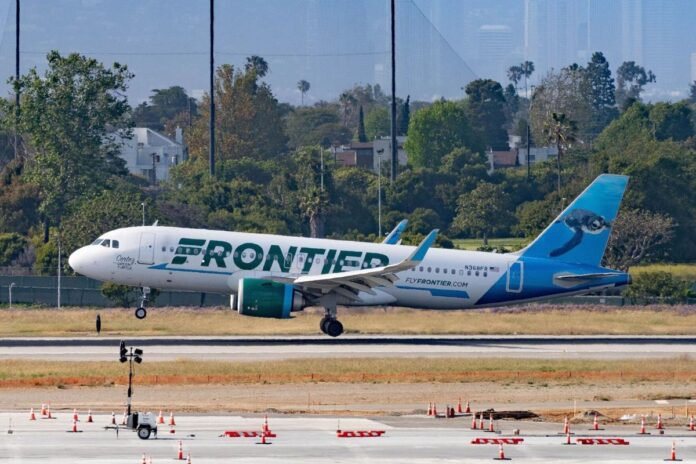Frontier Airlines issued a ground stop on Thursday evening due to a significant technical issue attributed to a Microsoft outage. The disruption left passengers stranded in terminals, including Denver International Airport (DIA), as the airline’s operations were severely impacted. Frontier, headquartered in Denver, announced they were collaborating with external vendors to restore normalcy. By 8:45 p.m., Frontier reported that the ground stop was lifted and systems were gradually returning to normal, signaling the resumption of flight operations.
Passenger Reactions and Inconvenience
The technical outage affected various aspects of Frontier’s services, including booking, check-in, access to boarding passes, and flight departures. This led to widespread cancellations and delays, with customers expressing frustration over the lack of communication and inability to rebook flights through Frontier’s app or website. Passengers took to social media to voice their complaints, citing difficulties in obtaining information from gate agents.
At DIA, a long line of disgruntled customers formed, including those heading to St. Louis to visit family. Their flight was canceled just 20 minutes before departure, and their attempts to rebook were thwarted by the system crash. Many passengers, after hours of waiting, decided to leave the airport and accept offers of accommodation from friends or family, vowing not to fly with Frontier again.
Implications of Frontier Airlines Closure on Other Airlines
The outage, described by Frontier as a “major Microsoft technical outage,” also impacted other airlines, including Allegiant and SunCountry. Allegiant’s website was rendered inaccessible due to issues with Microsoft Azure, while SunCountry experienced a global outage at a third-party vendor affecting their booking and trip management systems. The Federal Aviation Administration (FAA) confirmed that Frontier had requested a nationwide pause on its departures, which was lifted later in the evening.
Data from FlightAware indicated that Frontier canceled 131 flights and delayed 223 others on Thursday, accounting for nearly 30% of its total flights. Despite the widespread disruption, major airlines like United, Southwest, and American Airlines reported no impact from the Microsoft outage.
Technical Details and Microsoft’s Response
Microsoft’s Azure cloud service experienced failures around 6 p.m. ET, particularly affecting customers in the Central US region. The issues included service management operation failures and connectivity problems. Microsoft acknowledged the problem on its Azure status report site and assured customers that they were working to resolve the issue. However, specific details about the root cause and a comprehensive resolution timeline were not immediately provided.
CERT-In Alert: Fortifying Digital Defenses Against Microsoft Vulnerabilities
Operational Challenges for Frontier
The incident underscores the challenges airlines face when reliant on external technology vendors for critical operations. Frontier’s decision to halt all departures nationwide highlights the severity of the outage and the cascading effects on its operational capabilities. Passengers experienced significant delays and cancellations, leading to a backlog that took hours to clear even after the ground stop was lifted.
Microsoft Issues a Warning Against Moonstone Sleet, A North Korean Hackers Linked to Storm-17
Customer Impact and Future Precautions
For passengers, the outage was a stark reminder of the vulnerabilities within the airline industry’s technological infrastructure. The inability to rebook flights or obtain timely information exacerbated the frustration and inconvenience. As a result, customer confidence in Frontier’s reliability may be shaken, prompting the airline to reassess its technological dependencies and customer communication strategies.
In response to the outage, Frontier offered refunds to affected passengers, a necessary step to mitigate customer dissatisfaction. Moving forward, Frontier and other airlines must consider implementing more robust contingency plans to handle similar disruptions and enhance resilience against third-party vendor outages.
Microsoft President Brad Smith Testifies on Cybersecurity Failures Leading to Chinese Attacks
The major Microsoft outage that led to Frontier Airlines’ ground stop serves as a critical lesson in the importance of technological reliability and customer communication in the airline industry. As Frontier and other affected airlines work to restore normal operations and address customer concerns, the incident underscores the need for enhanced preparedness and better handling of technological disruptions to minimize impact on passengers and maintain trust in airline services.



